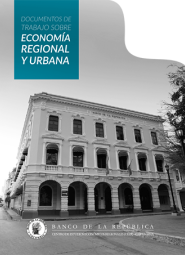The Banco de la República and the Constitution of 1991
The 1991 Constitution drawn up by the Constituent National Assembly introduced various reforms to the previously existing central banking system in Colombia.
The principal reforms were aimed at the replacement of the Monetary Board by the current Board of Directors to act as the maximum authority as regards monetary, credit and foreign exchange matters. The Board of Directors acts independently of the Government and is composed of seven members, as follows:
The Minister of Finance, who acts as the Board’s presiding member, the Governor of the Bank and five permanent, full-time members who are appointed by the President of the Republic for respective four-year terms. At the end of the four-year term, the succeeding President may alter the appointments of only two of the five permanent members, leaving the remainder to continue in the exercise of their duties. Nevertheless, none of the members can remain in office for more than three consecutive terms. This system guarantees continuity in Bank policy while safeguarding the Bank from the influences of political change, thus ensuring long-term planning and greater public credibility.
The 1991 Constitution also eliminated several functions, such as extending credit (development credits) to the private sector or to the Government, except under previously foreseen, special circumstances. Under normal circumstances, the Bank can only extend credit to financial intermediaries that are experiencing temporary problems of liquidity or shortage of resources.
The most important innovation was the decision to confer constitutional status to the aim of preserving the currency’s buying power as the Bank’s principal objective. This means that one of the Board of Director’s priorities is inflation control, although this priority must be pursued in co-ordination with general economic policy. The achievement of harmony between the policies of the Bank and those of the Government is the motivating cause behind the appointment of the Minister of Finance as President of the Board. The reason behind the conferral of such great importance to inflation control is the high cost of inflation. Given the high social cost of inflation, it is an urgent and pressing task to reduce inflation in order to stimulate the increase of national savings and investment.
On December 29, 1992 the National Congress published the Law of the Banco de la República (Law 31) in order to expound and determine precisely the previously mentioned constitutional norms.





















































